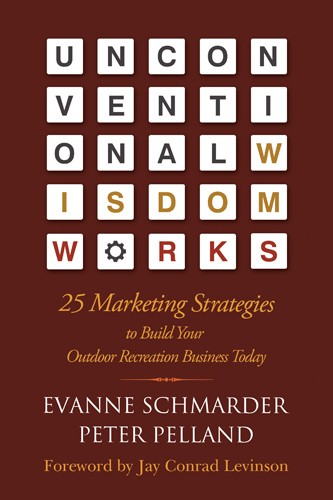Unconventional wisdom about social media
Post on: 1 Апрель, 2015 No Comment

If Aristotle and other great thinkers had an angel fund, would they bet on social media startups?
If Aristotle and other great thinkers (or wannabe greats) were discussing whether to invest in social media startups, based on how good social media is for society as a whole, the conversation would evolve into an exploration of truth, reality, self and social norms.
Here’s how the conversation might go if the great thinkers were the GPs (general partners) and LPs (limited partners) in an angel fund focusing on social media startups.
Scene 1: Aristotle, a promising analyst ponders about social media. He knows the more we know, the more we don’t know. He’s realized that the great big ball of knowledge — Google — has given him answers at his fingertips. So, he’s feeling increasingly inadequate about his knowledge each day. Yet he still enjoys doing due diligence for his boss — Austrian economist Joseph Schumpeter. the great angel investor, who with Karl Marx and Adam Smith, is starting a new seed-stage venture firm, called Antiquity Ventures. The treo want to know more about social media, because it’s apparently a hot area to invest in. Aristotle, is the up-and-coming senior associate. In this scene Schumpeter and Aristotle and Marx discuss social media]
Schumpeter: Aristotle, how much time are people spending on these social media sites?
Aristotle: Well, on Facebook, of the 200 million members, about 70% are addicts. On MySpace, it’s 60%. compare that to Google, which only has 1% addicts.
Schumpeter: What does that mean?
Aristotle: Philosophically, it means people are social beings. They’d prefer to spend more time on sites that connect them to people than to Web pages.
Schumpeter: Yes, of course, I have found myself spending more time on Facebook because I keep getting invites to be someone’s friend.
Aristotle: I’ve friended you and you’ve not responded. But nonetheless, Schumpeter, you must realize that these social networks have spawned an entirely new ecosystem of “social” startups, such as Zynga, RockYou, Slide, Watercooler and Buddy Media. All these social startups are creating new environments for people to connect and socialize while at the same time turning social conventions on their head!
Schumpeter: Social destruction. It has a nice ring to it. Let’s go long and invest in social media startups!
Marx: Socialism startups? I’m in. If socialism startups can replace capitalism startups, I’d like to invest.
[Schumpeter decides he’s going to try and get in on the next Twitter round, unless Google buys it for $1 billion. Enter Albert Einstein, Sigmund Freud and American philosopher John Rawls ]
Einstein: Gentlemen. I have a theory about social media. I = PF2, where I=identity; p=posts; f=followers squared
Rawls: What does that have to do with the social good, and whether society will be more engaged on social media sites?
Einstein: Identity is crucial. If social media allows us to know our true selves, then social media is morally and economically worth investing in. And, based on my Twitter followers of 5 million, and comments on my blog posts, I’m awesome. even bigger than Guy Kawasaki.
Freud: But is it your true identity? It seems the Id — the impulsive psyche that operates on the pleasure principle — is the part of me that comes out on these networks, particularly MySpace, especially after a long night of. Well, you know what I mean, Al.
Rawls: Hmm… MySpace is original position 2.0, where everyone is represented as a two-dimensional profile, excluding multimedia embeds of course. Everyone is equal and will seek to find the common good. Social media is advancing our understanding of ourselves. Social media can only become more embraced from here. I agree. Go long social media!
[Rawls and Einstein decide they want to be LPs in Antiquity Ventures, the venture firm of Schumpter, Marx and Smith. Freud holds off and says he wants to dream about social media first. Enter Joseph Stalin by himself, who spots a term sheet for FriendFeed.]
Stalin: What is this liquidation preference? In my day, liquidation preference meant you just shot everyone. I’m not investing in social media entrepreneurs. They are opportunists. They’re capitalist pigs. I’m not a fan. That said, I just created a Politburo group on Facebook. Please join.
[ Stalin declines to invest in Antiquity Ventures. Enter Ralph Waldo Emerson, Thomas Aquinas, Oz Guinness — author of Time for Truth, Pastor Tim Keller of Redeemer Church]
Emerson: After I finished writing Nature, I holed myself in a cabin and mused about these online social worlds. I realized that the virtual world is an all-encompassing divine entity inherently known to us in our innocence. It is not a mere component of a world ruled by a God, or even Google for that matter. In other words — it’s big. I also like the new voices of the micro-bloggers on Twitter. They’re so unique. It’s a new literary era!
Aquinas: Mr. Emerson. As it says in Ecclesiates, there’s nothing new under the sun. There was a first mover to Twitter. Ambient noise has always been. It’s just now widely available. To that end, it’s inevitable that social media will be widely adopted and embraced.
Guinness: It’s inevitable only if you think it’s inevitable. We live in a post-modern world. Hence, we can decide whether social media is good or not. In fact, truth is what we make of it, just look at Wikipedia. It’s our version of truth.
Keller: Hmm. That raises a good point. If a tree falls down in the woods, and no one Twitters about it, has it actually happened?
Guinness: As long as someone chronicles it in Wikipedia, it can happen without it haven fallen at all.
Keller: Social media seems to be more inclusive than exclusive. So, it’s probably a good thing. But does social media bring about truth?
Guinness: Who cares about truth? All that matters is that we convince people that social media is the next new thing. The truth is created by the masses. It is not to be discovered, but to be created.
Keller: That’s what I’m afraid of.

Aquinas: There’s nothing to fear but fear itself. Just know that connectedness is inevitable. Invest in social media!
[Aquinas has dinner with Paul Bucheitt to try and convince him to let him in on the next round of FriendFeed. Enter Douglas Adams, Oscar Wilde, CS Lewis]
Lewis: I do desire to invest in social media. I spend a lot of time on Twitter, offering up 140-character Haikus. I’ve got 1 million followers today, far more than the reach I had on radio.
Adams: Personally, I think the haikus should be limited to 42.
Lewis: Why 42?
Adams: I’m not sure. It doesn’t matter, actually. No one really knows. But 42 is the answer, according to Deep Thought.
Wilde: What’s the question?
Adams: I think it’s whether social media will really engage people so much that they’re worth investing in. But I’m not sure they’re worth investing in. I’ve hitchhiked around the galaxy, and it seems it’s the Chinese social networks — like TenCent, Mixi, DENA and Gree — that know how to make a viable business out of this social media stuff.
Wilde: A dreamer is one who can only find his way by moonlight, and his punishment is that he sees the dawn before the rest of the world. Adams, you’re a dreamer, and quite possibly a fool.
Adams: As long as there are greater fools, I’m fine with it. Invest in social media!
Wilde (rolls his eyes at Adams, then looks at Lewis): You know Lewis, the beauty of social media is that your followers can bring in other followers, possibly faster than radio. I’m going to start following you on Twitter.
Lewis: Thank you! You’re right about how quickly one can get an audience, even though with so many voices out there, it is hard to rise above the noise. But I must admit, there is something very ego boosting about seeing how popular one is. I truly like the smiley faces on FriendFeed. It is part of our nature to be acknowledged. Don’t you think?
Wilde: You’re right, Lewis! Increasingly, our value is measured by the number of Twitter followers, FriendFeed subscribers and Facebook friends we have. Invest in social media startups!
(Image source: blogs.itworldcanada.com)
This story was adapted from a column I wrote while at MarketWatch, called: Unconventional wisdom about Net stocks. I plan to write more segments about the thoughts from great thinkers or wannabe greats. If you have a great thinker you want me to include, let me know. Or, if you have a thought about what great thinkers would say about social media, let me know.














